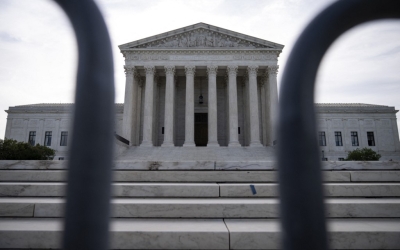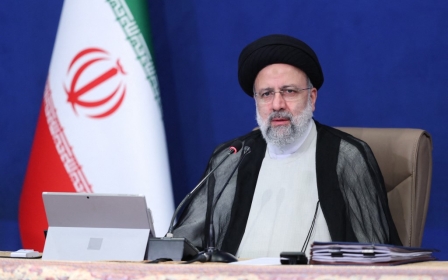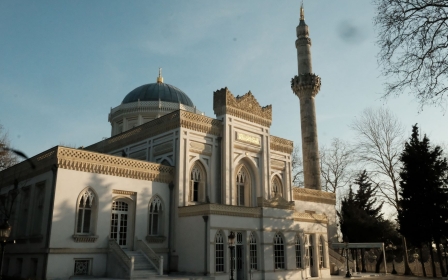US to release religious Iranian decorative tiles to Virginia mosque

The US Treasury Department has released 750 pounds of Iranian religious tiles that were destined for a mosque in northern Virginia, after confiscating the artwork in June and claiming the gift violated sanctions imposed on Tehran.
"The US Treasury Department's Office of Foreign Assets Control (OFAC) has reviewed and approved a license application by a Manassas, Va., mosque to lawfully import a shipment of Quranic tiles from Iran," a US Customs and Border Protection spokesperson told Middle East Eye in an email on Wednesday.
The department notified leaders of the Manassas Mosque that the tiles were authorised for release, the Council on American-Islamic Relations (CAIR) said in a press statement on Tuesday.
"We welcome this decision as a reaffirmation of our nation's respect for religious freedom and diversity. Americans of all religious backgrounds should have access to the symbols of their faith, whatever the origin of those symbols," said Edward Ahmed Mitchell, CAIR's national deputy director.
In June, Customs and Border Control (CBP) confiscated the tiles on arrival and said they must be "re-exported or destroyed", according to an email shared by CAIR.
CBP agents had told the representatives of the mosque that a shipment needed a licence and clearance by OFAC - which enforces US economic and trade sanctions - and a licence application was sent to the Treasury Department.
A CBP spokesperson told MEE that the border agency originally placed a hold on the shipment on 21 June. Then, on 30 June OFAC deemed the tiles a violation of Iran sanctions, and the CBP detained the shipment.
However, Abu Nahidian, the Imam of Manassas Mosque, said earlier this month that because the tiles were a gift, they have no real financial value. Therefore, they should not be regulated by OFAC.
He added that he received other tile shipments throughout the years without any problems, including one shipment that arrived eight months ago.
The tiles contain verses of the Quran, the Muslim holy book, and were a custom-made gift shipped from the Iranian city of Qom, according to Nahidian.
They will be used to build a mihrab, a niche in the wall of a mosque that indicates the direction of prayer for Muslims.
"Thank God the tiles were not re-exported and the verses of the Quran were not destroyed, and they were instead released for delivery to our mosque," the Imam said in a statement on Tuesday.
Since former President Donald Trump left the Iran nuclear deal with world powers in 2018, the US has reimposed wide-ranging and crippling sanctions on Tehran.
While the sanctions include some exemptions, including for humanitarian relief, the penalties for violating the measures and the complex laws that govern them have deterred many financial institutions from being involved in any transactions with Iran.
Middle East Eye propose une couverture et une analyse indépendantes et incomparables du Moyen-Orient, de l’Afrique du Nord et d’autres régions du monde. Pour en savoir plus sur la reprise de ce contenu et les frais qui s’appliquent, veuillez remplir ce formulaire [en anglais]. Pour en savoir plus sur MEE, cliquez ici [en anglais].





